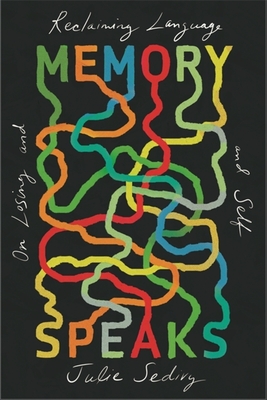What do you think?
Rate this book


368 pages, Hardcover
Published October 19, 2021
No hay una edad en la que una lengua, aunque sea la materna, esté tan firmemente arraigada en el cerebro que no pueda ser desplazada o alterada por una nueva. Como un hogar que acoge a un nuevo niño, una mente no puede admitir una nueva lengua sin que ello repercuta en otras lenguas que ya residen en ella. Las lenguas pueden coexistir, pero se disputan, como los hermanos, los recursos mentales y la atención. Cuando una persona bilingüe intenta articular un pensamiento en una lengua, las palabras y estructuras gramaticales de la otra lengua a menudo claman en el fondo, compitiendo por la atención. Y si la atención se dedica desproporcionadamente a la nueva lengua, la anterior sufre las consecuencias.
Durante mis años de formación, Checoslovaquia era un lugar remoto e impenetrable. Por razones tecnológicas y políticas, poco pasaba a través de sus fronteras, tanto para entrar como para salir. Las llamadas telefónicas al extranjero eran tan caras que no había posibilidad de mantener conversaciones tranquilas con los parientes en casa. Las cartas se abrían, se leían y se censuraban. No había posibilidad de volver de visita, aunque nos lo hubiéramos podido permitir. El gobierno comunista no consideraba legal la salida de mi familia, por lo que habríamos sido condenados a penas de prisión a nuestra llegada. Crecí dudando de poder volver a ese país en mi vida.
Hoy en día, soy testigo de cómo algunos jóvenes a caballo entre países y culturas pueden viajar con sus familias a su país ancestral cada uno o dos años, y de cómo pueden consultar revistas, blogs, películas y vídeos de YouTube en sus pantallas en la intimidad de sus dormitorios y flirtear en secreto con alguien del otro lado del mundo que habla su idioma.
Las clases de idiomas suelen centrarse en un estilo de lenguaje apropiado con desconocidos o conocidos, pero los hablantes del patrimonio cultural pueden necesitar aprender el lenguaje que se habla entre iniciados, o un lenguaje con muchos matices sociales y no sólo gramatical.
Una dependienta en particular parecía tener grandes dificultades para entenderle. Le informó, como si estuviera dando instrucciones a un niño, de que no pronunciaba correctamente ciertas palabras, como si el hecho de que se le informara de ello fuera a remediar de algún modo el acento. Lo siento», dijo mi hermano, “mi checo no es muy bueno”. Sí, ya lo oigo», dijo el empleado, sin el menor atisbo de sonrisa o ánimo.